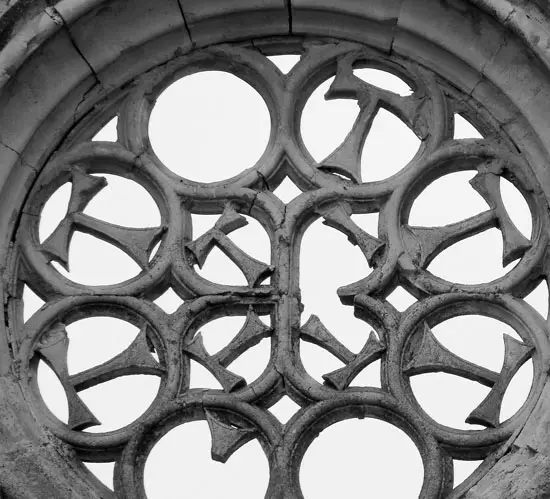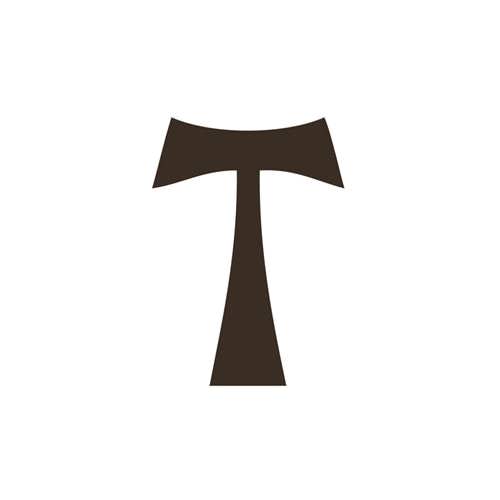The Cross of Tau symbol derives its name from the Greek letter that it resembles. Its T shape was believed to represent an ancient form of the crucifix. The Cross of Tau was also regarded as a symbol of salvation due to the connection between the tau and the Biblical mark placed on the forehead of the people destined to be saved, as mentioned in Ezekiel 9:4 (וְהִתְוִיתָ תָּו עַל־מִצְחֹות הָאֲנָשִׁי “set a mark on the forehead of the men”). A related theory compares the tau with the shape formed by the hands of Moses in Exodus 17:11.
Also known as St. Anthony’s Cross, the Advent Cross, and Saint Francis’ Cross, the Cross of Tau is associated with the most prominent saints in the Catholic faith. St. Anthony wore a tau-shaped cross on his cloak. St. Francis of Assisi adopted it as a personal emblem and used the tau to decorate the doors and walls of whatever home he was staying at. He also used it as his signature.
Outside of Christianity, the Cross of Tau is a symbol of immortality. The Chaldeans and Egyptians viewed it as a representation of Tammuz, the Sumerian god of death and resurrection. During baptism ceremonies, it was marked on the recipient’s forehead by the pagan priest.

Symbols Menu:
» Amulet
» Ajna
» Arsenic
» Merkaba
» Hung
» Yin Yang
» bindi
» IK Onkar
» Khanda
» Halo
» jiahu
» Tau
» Uraeus
» Menorah
» Quincunx
» Tilaka
» Taijitu
» Vajra
» Chai
» Chi Rho
» Bagua
» Dragon
» Hunab Ku
» Caduceus
» Infinity
» Ichthus
» Hedjet
» Lauburu
» Om
» Ankh
» Chalice
» Pentacle
» Maat
» Ogham
» Mandala
» Kartika
» Khamsa
» Heart
» Labrys
» Sun Face
» Raven
» Triskele
» Scarab
» Dove
» Hanukia
» Anubis
» Trishula
» Durga
» Mezuzah
» Bay Tree
» Geruda
» Kinnara
» Quito
» Condor
» Blue Jay
» Falcon
» Makara
» Rosary
» Uluru
» Apsaras
» Hanuman
» Serpent
» Minotaur
» Mercury
» Apex
» Vestra
» Yoni
» Astarte
» dakini
» Calabash
» Mandrake
» Rebis
» Typhon
» Vegvísir

